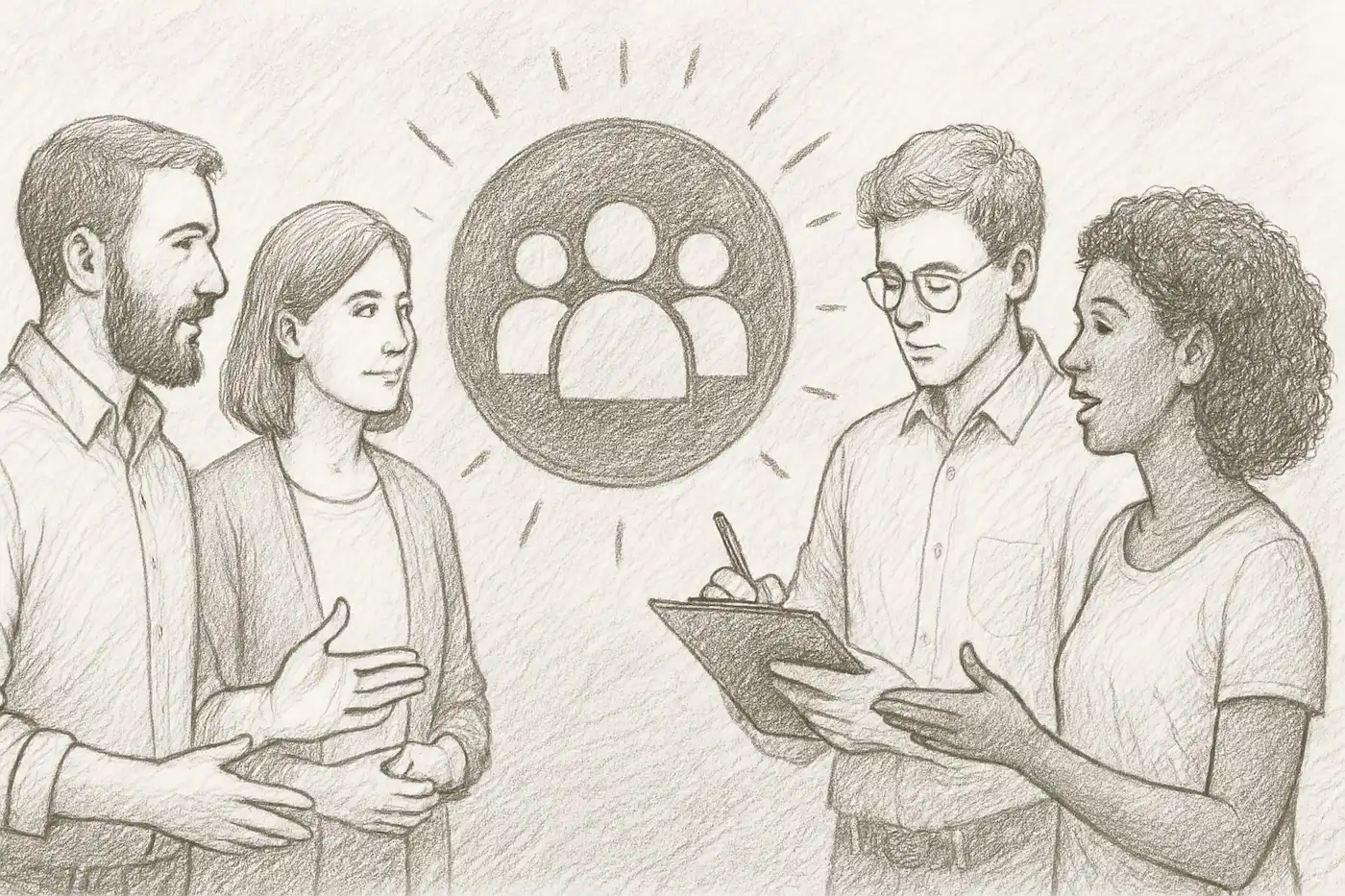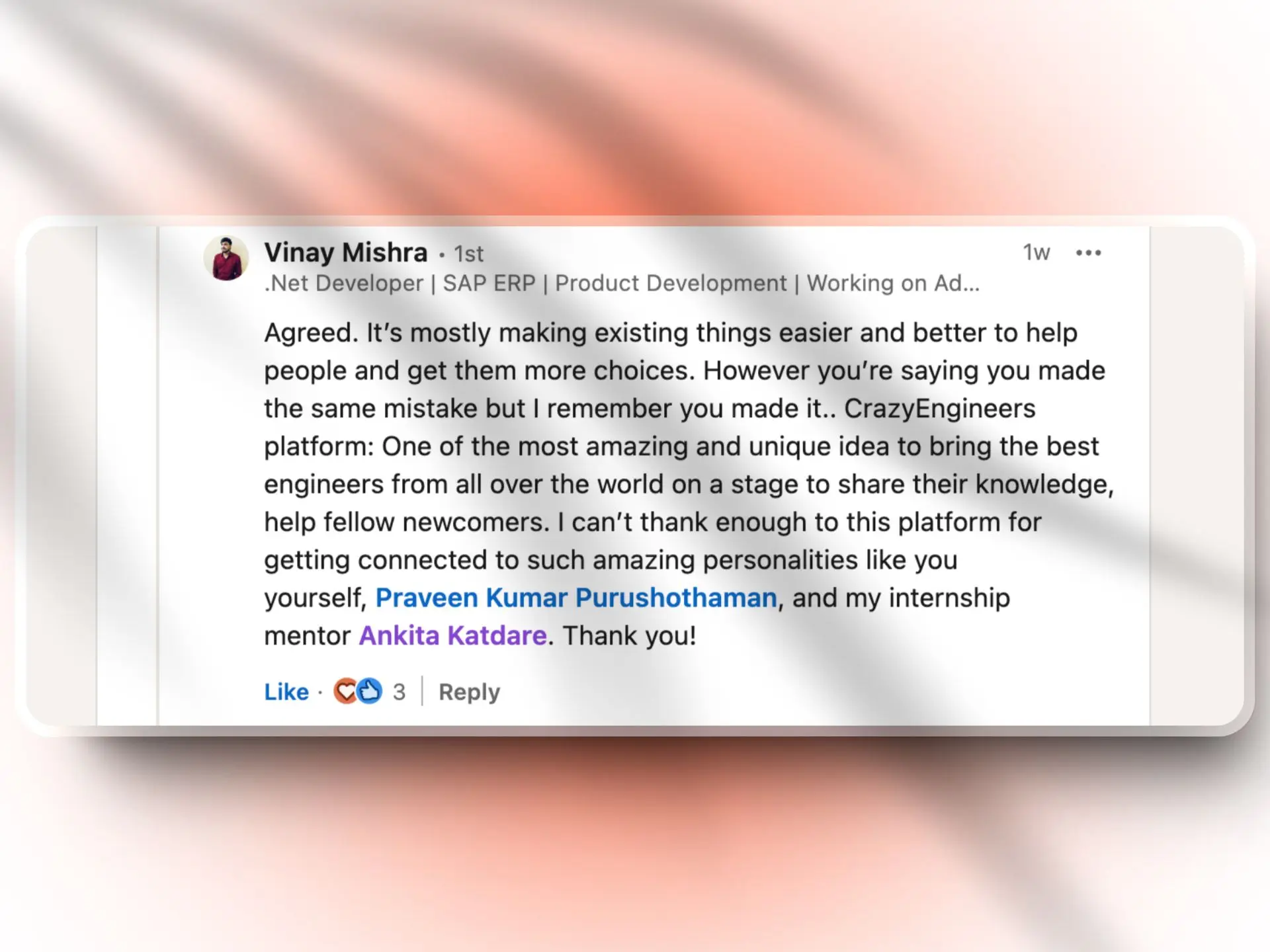21 Top Skills for Community Building and Engagement

In this article, I will share a list of 21 must have skills for any professional community builder.
Now, even with almost 20 years of community building experience, I don’t claim to have mastered all the skills I’ve mentioned below.
But that’s okay! No one is perfect.
Even if you are new to community building as a profession or an experience professional, aim to have at least 10 of these skills on your resume.
Here’s a TL;DR list of skills essential for community building and community engagement:
Empathy
Communication
Active Listening
Conflict Resolution
Content Creation
SEO Knowledge
Organizational Skills
Event Planning and Management
Emotional Quotient
Moderation
Community Engagement
Data Analysis
Leadership
Graphic Design
Public Speaking
Social Media Marketing
Crisis Management
Networking
Gamification
Survey Design and Analysis
Storytelling
I have broadly categorized the skills into two categories: “Must Haves” and “Nice to Haves.” Let’s start!
Must Have Skills for Community Building
Building a thriving community takes more than enthusiasm. It requires specific skill-set designed to foster meaningful interactions among the community members and keep members coming back.
1. Empathy
Empathy is without doubt the #1 skill required for community building.
It starts with your ability to understand the feelings, needs and motivations of your community members. It allows you to create a safe, welcoming pace where everyone feels valued.
Example of developing empathy: A community builder must spend time reading through community discussions and understand the ‘why’ behind the comments.
It requires ability to be able to put yourself into the shoes of your community members and understand the main reason they are participating in the community.
 Tip: Develop a ‘member persona’ journal where you jot down various motivations, interests and pain-points that you regularly notice in your community. This will help you develop a clearer picture of your community member’s experience.
Tip: Develop a ‘member persona’ journal where you jot down various motivations, interests and pain-points that you regularly notice in your community. This will help you develop a clearer picture of your community member’s experience.
2. Communication
Clear and consistent communication forms the backbone of effective community building. As a community builder, your ability to communicate effectively can be the difference between a vibrant, engaged group and a disconnected, inactive one.
Communication skills go beyond simply relaying information; they involve building trust, creating an inviting atmosphere, and encouraging participation.
Effective communication in a community setting is complex and multifaceted. It’s influenced by several factors, including tone, choice of words, and context.
The tone you use can set the mood of your community interactions—whether warm and friendly, professional and informative, or somewhere in between.
Your choice of words can influence how approachable or authoritative you come across, and your context determines how appropriate or relevant the information is to your members. Each of these factors plays a role in shaping how members perceive and engage with the community.
Here’s a set of rules that you can follow for effective online communication with your community members:
Be consistent in your communication - schedule posts, announcements and reminders.
Adapt your tone to the audience: Whether formal, casual or friendly - see what works for your community.
Practice brevity and clarity: Keep messages simple and to the point.
Encourage feedback and open dialogue among the members.
Be trustworthy - Keep your word and go by the facts
Be respectful - of your members background, race, education and beliefs
Be transparent - honest communication builds trust.
Be prompt - in responding to questions or mentions directed at you
3. Active Listening
Active listening is a skill so important and it goes way beyond hearing and responding appropriately.
This skill enables community builders to address concerns of the community members and create content that addresses members’ real needs.
I strongly recommend reading “The Art of Listening” by Erich Fromm - an excellent book dedicated to active listening.
In order to develop active listening skills, start by making a conscious effort to solely focus on the speaker without interrupting or planning your response.
After they have finished speaking, summarise what they have said to ensure that you understood them correctly.
4. Conflict Resolution
As your community grows, conflicts among the new and even the most seasoned members of the community will be frequent.
It’s a natural part of human interaction.
Effective handling of conflicts among the members, without disturbing the overall harmony of the community is an important skill for community builders.
In order to develop conflict resolution skills - practice staying neutral, identifying the root cause of the conflict and encouraging a respectful dialogue among all the stakeholders.
Back in 2012 - I was the administrator at CrazyEngineers Community - a vibrant community of engineering professionals and students. Our members had diverse backgrounds and experiences. We hosted weekly debates for our members on variety of global, technical topics.
One debate got heated and quickly divided the group into two sides. Both sides had valid points, and as the administrator, it was my job to resolve the conflict peacefully.
To bridge the gap, I sent direct messages (DMs) to each member. I acknowledged their perspective but also explained the validity of the opposing views.
It took about three weeks of constant communication and presenting facts to finally reach harmony among the two groups. Those members are still active members of the CrazyEngineers community.
5. Content Creation
Especially in the early days of building a community from scratch; the onus of content creation is on the community builder.
In fresh communities, the content has the power to attract new members and keep them engaged. So, how do you create content?
I propose developing ability to create ‘painkiller’ content - something that immediately solves a burning pain that your potential community member is facing.
Create content in the form of QnA, Articles, Quizzes, Polls, Webinars and more for your members. Maintain a positive and enthusiastic tone in all your content.
Keep in mind that if you solve pain-points for your community members, they will want to engage with the community.
6. SEO Knowledge
Many will find it surprising that SEO is in this list.
SEO aka Search Engine Optimisation is essential for creating organically growing communities - because the user generated content on your community is a goldmine to attract traffic from Google.
SEO is a vast domain; but even with the basic knowledge of SEO you can make huge progress. Platforms like Jatra make it easy to build organically growing communities by optimising content for SEO.
Here are the SEO basics you get you started:
Keyword research - learn the keywords that users type to ask questions
Mention keywords in title, headings and content naturally
Keep traffic generating content fresh
Interlink the content within your community
Improve the user experience and session-time on the community
Basically, your goal is to build content that your users love and want to engage with. A good community platform should take care of the technical SEO aspects like site speed, semantic HTML, follow vs nofollow links, meta data, structured data etc. for you, automatically.
When developing Jatra, we paid special attention to SEO features so that our community builders can focus on creating engaged communities.
7. Organizational Skills
Community building, whether it’s online or offline, demands managing events, coordinating with team members, and optimizing the output.
For instance, I organized city-wide meetups for our community members in India and Southeast Asia (SEA).
These city-meetups had an attendance range of 12 to 100 people. Managing these events effectively necessitated both online and offline communication and coordination among the members.
These events were incredibly effective in fostering strong networks among our members and instilling a profound sense of belonging within our community.
8. Event Planning and Management
Building strong communities involved planning both virtual and in-person events.
As a community builder, you will have to experiment with different event-ideas, pick the most relevant events, organize them and track the output.
I recommend starting with small virtual meetups to gain experience in event planning. For example, you can start with monthly member meetups on Zoom or Google Meet.
The next step would be to organise webinar for your members with audience of up to 100 members.

Once you gain sufficient experience, you can organise bigger virtual events, AMA sessions with industry experts or virtual conferences.
9. Emotional Quotient (EQ)
In the community-building world, the emotional quotient is more important than the intelligence quotient.
Emotional Quotient is the ability to recognise, understand and manage your own emotions as well as empathise with the emotions of the others.
Over the past 20 years, I’ve realised that community builders with strong EQ will pick subtle cues, address sensitive issues and create a supportive atmosphere for the community even in the most challenging situations.
For instance, if a community member expresses frustration, a community builder with high emotional intelligence will swiftly discern the genuine emotion concealed beneath their words and respond empathetically.
10. Moderation
Community moderation is a valuable skill that can be acquired through experience. Every growing community will eventually be subject to spamming by robots and humans.
Even with the most sophisticated anti-spam tools; human-generated spam is an unsolved problem.
Community moderation, therefore, is a shared responsibility among the community administrators and the moderators.
Skilled moderators possess the expertise to effectively enforce community guidelines without resorting to excessive rigidity or discouraging members from actively participating.
Moderators will need to develop the ability to discern genuine intentions. Occasionally, new members may register with the intention of posting advertisements or spam links in posts or comments.
In such instances, moderators will be compelled to take decisive actions, including removing the links, deleting the posts, issuing warnings, or even permanently banning the member.
11. Community Engagement
As community grows and attracts members from diverse backgrounds, maintaining a healthy engagement becomes a pressing challenge.
As a community management professional, you will have to develop strategies to keep users engaged and keep them coming back.
Following are the 8 proven strategies for community engagement:
Member of the month initiative to rewards best contributors
‘Small Talk’ with your most valuable community members
Virtual meet-ups with your community members
Online quizzes for your members
Conducting surveys to gather feedback
Offline-meetups to build strong sense of belonging and network
AMA sessions with domain-experts
Online contests exclusively for your community members
At a B2B SaaS community that I built, we organised online hackathon for our community members that led to boost in our membership count by almost 2x from 500 to about 980 within just about 3 days.
In 2015, we organised India’s Biggest Engineering Project Contest for the members of CrazyEngineers community - that helped us gather almost 20,000 new, engaged members within a month’s time.
12. Data Analysis
The famous management guru, Peter Drucker aptly said -
If you can’t measure it,
you can’t improve it
If you’re building a community, you’ll need to know how to measure its success.
We’ve got you covered with our article on KPIs for Community Building and Engagement. We’ll break down the key indicators for each stage of your community.
For example, in the initial days of community building; knowing which threads on your community are attracting most traffic and comments from members will allow you to understand -
Topics of interest
Pain points
Motivations
This will allow you to create more content to boost engagement in your community.
You may start with simple tracking tools like Excel sheets to keep track of post views and comments. You may also integrate sophisticated tools like Google Analytics or PostHog to understand the user-flow and behavior on your community.
13. Leadership
The final skill that every community builder needs is leadership. Your community is a reflection of your vision for your members.
Good leaders give direction and inspire others to work towards shared goals.
Leadership is often needed when your community grows to over 500 members.

A leader can help nurture the community, create a safe and inclusive environment for members, and make tough decisions that affect the community’s growth and culture.
They also empower members by recognizing their strengths and encouraging them to take on roles or contribute their expertise.
Nice to have Skills for Community Builders
Let’s talk about the skills that will take your community building expertise to the next level.
Following skills will help you build better communities, faster.
Let’s go over them one by one.
14. Graphic Design
In the early days of online communities, 90% of the communication was text-based. People would type long-texts to make a point.
The tools to create stunning visuals almost did not exist; or required expertise in sophisticated tools like Adobe Photoshop and Illustrator.
In the past 10 years, startups like Canva have enabled everyone to create amazing graphics without much training.
Now with the arrival of services like Midjourney and OpenAI Dall-E, all you need to create a stunning original AI-image is a text-prompt. Simply define the image you want the AI to generate, and it will generate photo-realistic image.
Ability to create stunning graphics will help you communicate better, express your thoughts and get attention from your members.
15. Public Speaking
Ability to confidently address and engage with your audience through in-person events, online events, webinars, meetings is an underrated skill.
Strong public speaking skills allow community builders to convey ideas clearly, inspire members, and facilitate interactive sessions that bring members together.

Why it’s Important: Live events and presentations help create personal connections within the community. Public speaking lets community builders engage directly with members, answer questions on the spot, and foster a sense of unity and excitement.
16. Social Media Marketing
Social media marketing involves making effective use of platforms like Instagram, X, LinkedIn, Facebook, Pinterest, Reddit and Quora to engage with a wider audience.
SMM skills allow community builders to expand their reach and attract new members to the community from different geographies.
Social Media Marketing skills are important to drive awareness, build brand, create buzz and drive traffic to your community platform.
There are several free courses and videos available on YouTube to help you get started with SMM.
17. Crisis Management
Crisis management is the ability to handle unexpected issues or conflicts calmly and effectively.
This skill equips community builders to navigate difficult situations, such as public complaints, misunderstandings, or technical failures, without disrupting the community’s overall harmony.
Unexpected challenges can quickly affect a community’s atmosphere.
Effective crisis management keeps members’ trust intact, shows that their concerns are taken seriously, and ensures a smooth return to normalcy.
18. Networking
The ability to build valuable connections and partnerships with individuals and organizations can accelerate your community’s growth and success.
Networking may include reaching out to your potential members, engaging in conversations with them, inviting guest speakers and influencers to your community.
Sometimes, you may partner with organisations to engage with communities.
For example, SIEMENS - the world-class engineering company promoted their “Can you answer this?” initiative through our engineers community. It helped them drive awareness among the technical audience of our community and helped our members learn about the new technologies that SIEMENS is developing.
19. Gamification
Gamification is much more than simply throwing-away points for the actions your community members take. For example, I feel pained to see several communities simply put members on the leaderboard for the spammy posts they make.
The tactics that worked in the early days of community are no longer effective.
Gamification is a much deeper and harder challenge. It’s about tapping into members’ natural desire for achievement and recognition.
Gamification is also about maintaining healthy competition among the members where everyone feels valued.
The simplest gamification you may work on is “Member of the Month” initiative; where each MoM is featured on a publicly displayed leaderboard.
However, the selection of the member of the month needs to be a collective decision of the community owners, administrators and moderators. It should not be decided on the basis of ‘points’ they have collected.
20. Survey Design and Analysis
Ability to design surveys is important. It’s your way to understand the sentiment within your community and take corrective steps.
An effective survey will help you understand the actual needs, preferences and satisfaction levels of your community members.
It includes picking the appropriate questions that don’t lead to biased answers, determining the tone of the questions and also the overall length of the questionnaire.
Community builders tend to add incentives for responding to questionnaire. While this may work for some of the communities; I’ve often found that it fails the main purpose of the survey.
A lot of members will simply fill the questionnaire without really thinking about their responses. I am an advocate of surveys without incentives.
21. Storytelling
A skilled storyteller can effectively convey the purpose, values, and mission of a community in a compelling and persuasive manner.
Effective storytelling fosters emotional connections with community members, inspiring loyalty and creating enduring bonds.
A recent LinkedIn comment from one of our members exemplifies this phenomenon.

Skill-building for Community Professionals
As the demand for community builders rises, those who invest in skill-building will be well-positioned to create meaningful and lasting communities.
Keep in mind that no one masters every skill overnight. Start with the essentials we discussed and then layer-in the ‘nice-to-have’ skills as you grow.
If you have questions, me and my fellow community builders will be more than happy to answer you.